Amending the Electricity Law is essential and urgent in order to promptly and comprehensively institutionalize the policies and guidelines on sustainable development of the electricity sector; and to ensure energy security in the coming period.
[caption id="attachment_1130245" align="aligncenter" width="780"]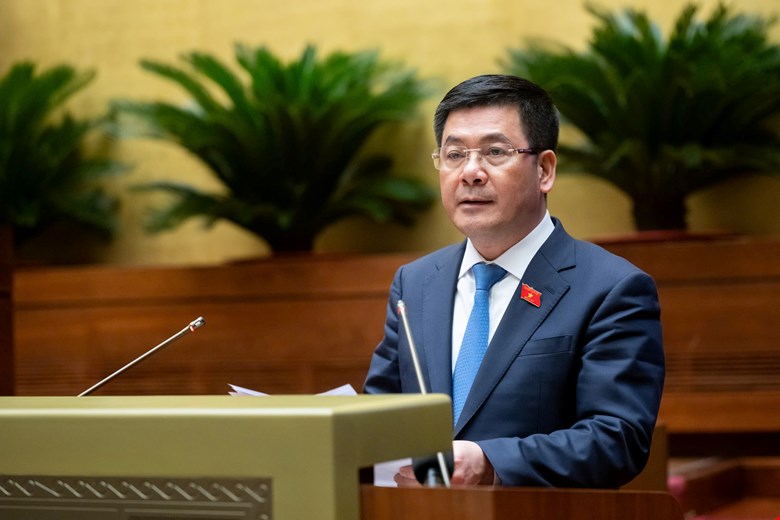 Minister of Industry and Trade Nguyen Hong Dien presents a summary of the draft Law on Electricity (amended) at the 8th Session of the 15th National Assembly (Photo: Chinhphu.vn)
Minister of Industry and Trade Nguyen Hong Dien presents a summary of the draft Law on Electricity (amended) at the 8th Session of the 15th National Assembly (Photo: Chinhphu.vn)The government proposes that the National Assembly consider and approve the draft Law on Electricity (amended) through a one-session process.
The Electricity Law was enacted in 2004 and amended in 2012, 2018, 2022, and 2023. Although it has been amended four times, each time addressing some difficulties and obstacles, many provisions of the current Electricity Law have revealed inadequacies and problems, failing to resolve new and important issues arising in practice.
Resolution No. 937 dated December 13, 2023, of the Standing Committee of the National Assembly pointed out institutional shortcomings and obstacles in the electricity sector and proposed the need for comprehensive regulations and mechanisms to address these shortcomings and obstacles, especially in the context of the Fourth Industrial Revolution, digital transformation, and the green energy transition, which are taking place strongly and are the dominant trends, significantly impacting the development of Vietnam's electricity sector.
On the other hand, over the past period, the Party and the State have issued many major guidelines and policies related to the energy sector in general and electricity in particular; many new related laws have also been enacted or amended by the National Assembly.
"Therefore, amending the Electricity Law is essential and urgent to promptly institutionalize the Party's new guidelines and policies; at the same time, to overcome the obstacles and shortcomings of the current Law, ensuring the synchronicity and uniformity of the legal system, contributing to promoting the sustainable and efficient development of the electricity sector, achieving the goal of doubling the total installed capacity of the entire system by 2030 and fundamentally changing the structure of power sources to achieve net zero emissions by 2050, ensuring national energy security, providing sufficient electricity for socio -economic development and meeting the needs of people's lives," said Tran Viet Hoa, Director of the Electricity Regulatory Authority (Ministry of Industry and Trade) .
Mr. Hoa also stated that the Government proposes that the National Assembly consider and approve this draft Law through a one-session process (giving opinions and approval at the 8th session of the 15th National Assembly) to ensure energy security in the coming period and overcome difficulties and shortcomings in the practical implementation of the Law, such as the lack of specific regulations for investing in emergency power projects; the lack of comprehensive regulations on mechanisms to promote investment, construction, and exploitation of new and renewable energy sources; the lack of incentives to switch from using fossil fuels to using low-emission fuels in electricity production; the lack of regulations on specific mechanisms for developing offshore wind power suitable to Vietnam's conditions in each period to attract domestic and foreign investment; and the lack of policies for small-scale renewable energy serving the needs of households, administrative agencies, and public works, ensuring compatibility with development goals and the conditions of the power system.
Timely and comprehensive institutionalization of policies and guidelines on sustainable development in the electricity sector.
According to Tran Viet Hoa, Director of the Electricity Regulatory Authority, the drafting of the amended Electricity Law aims to promptly and comprehensively institutionalize the Party's guidelines and policies on sustainable development of the electricity sector.
In addition, a comprehensive and synchronized revision of the Electricity Law's regulations is needed to ensure the inheritance of regulations that are "mature, clear, widely agreed upon, and proven in practice"; to abolish regulations that are no longer appropriate, causing obstacles or hindrances; and to supplement and develop fundamental and principled regulations suitable to the new situation, while promoting decentralization, delegation of power, administrative procedure reform, and selectively adopting international experience.
This draft law contains no provisions contrary to the Constitution, no policies contrary to the Party's guidelines and policies, or the State's laws and regulations; it does not promote group interests or localized interests and ensures compatibility with international treaties/commitments to which Vietnam is a signatory.
The drafting of the Bill has ensured compliance with the provisions of the Law on the Promulgation of Legal Documents, specifically:
The Ministry of Industry and Trade has conducted a review and assessment of the current Electricity Law, reviewed related laws, prepared a report on the review of legal documents, and established a Drafting Committee and Editorial Team in March 2024 to proceed with drafting the bill.
The draft law was sent out for comments as prescribed from March to May 2024; it was reviewed by the Ministry of Justice and approved by the Government to be submitted to the National Assembly.
The Minister of Industry and Trade, acting under the authorization of the Prime Minister, signed and issued Submission No. 380/TTr-CP dated August 7, 2024, to the National Assembly regarding the draft Law on Electricity (amended). The draft Law has undergone preliminary review by the Committee on Science, Technology and Environment (UBKHCNMT) and other National Assembly agencies; the Standing Committee of the National Assembly (UBTVQH) and the Conference of National Assembly Deputies working in specialized fields have also provided feedback on the draft Law.
The Ministry of Industry and Trade has incorporated and addressed the comments from National Assembly deputies and revised the draft Law. On September 25, 2024, the Minister of Industry and Trade, acting on behalf of the Government and authorized by the Prime Minister, signed and issued Submission No. 520/TTr-CP on the draft Law on Electricity (amended), and the Committee on Science, Technology and Environment held a session to review the draft Law.
Currently, the Ministry of Industry and Trade is studying, incorporating, and responding to the review comments to finalize the draft law and report it to the National Assembly at its 8th session of the 15th National Assembly.
The amended Electricity Law comprises six major policies.
Based on identifying the political foundations and summarizing the existing problems, obstacles, and difficulties in implementing the Electricity Law in the past, the Government has submitted to the National Assembly a proposal to amend the Electricity Law with 6 major policies, including:
(1) Planning and investment in power development to ensure national energy security;
1(2) Developing renewable and new energy power;
(3) Complete the regulations on electricity operation conditions and the issuance and revocation of electricity operation licenses;
(4) Manage electricity trading activities in a way that promotes a transparent, fair, and efficient competitive electricity market and electricity prices according to market mechanisms;
(5) Manage and operate the power system, focusing on encouraging electricity saving, strengthening the implementation of electricity demand management and electricity load adjustment solutions;
(6) Safe use of electricity after the meter and ensuring the safety of dams and hydroelectric reservoirs during the construction and operation phases of hydroelectric projects.
The draft Law on Electricity (amended) comprises 9 chapters with 130 articles, closely adhering to the 6 policies mentioned above and not adding any new policies.
The draft Law inherits and mainly amends 62 articles on general regulations, electricity operation licensing, electricity market, electricity trading, electricity prices, rights and obligations of electricity units and electricity users, protection of electricity facilities and electrical safety, and removes 4 articles (propaganda and dissemination of legal education; application dossiers for granting, amending, and supplementing electricity operation licenses; rights and obligations of specialized electricity consulting units; electricity inspection), and merges 4 articles into other articles (on the content of policies on development, investment, electricity saving, and electricity prices).
At the same time, 68 articles were added concerning power development planning, policies on bidding for investors in power generation projects, policies on handling emergency power sources, policies on the development and operation of gas-fired thermal power plants, power generation projects invested under the public-private partnership method using build-operate-transfer contracts, policies on renewable energy (solar power, offshore wind power), new energy (such as hydrogen), direct power trading mechanisms, full implementation of all levels of the competitive electricity market, moving towards eliminating cross-subsidization of electricity prices between economic sectors, time-of-day electricity trading prices, multi-sectoral electricity pricing, etc.
The increase in Articles and Clauses in the draft Law is primarily and essentially a new provision to pave the way for the strong development of the country's renewable energy potential; to develop a competitive electricity market based on market mechanisms with state management; to supplement regulations on investment in the construction of emergency power projects to ensure electricity supply security; and to impose strict penalties on power projects that are behind schedule.
During the drafting process, the Ministry of Industry and Trade developed the draft law to ensure its compatibility with international treaties/commitments to which Vietnam is a signatory, and the principle of ensuring gender equality and non-discrimination, specifically concretizing and guaranteeing human rights in accordance with the spirit of the 2013 Constitution and the Law on Gender Equality.
This draft law contains no provisions contrary to the Constitution, its proposals are open and transparent, and it does not contain policies that contradict the Party's guidelines and regulations, or the laws of the State, nor does it promote group interests or localized interests.
The draft law is being developed with the aim of clearly defining the responsibilities of state management agencies in the electricity sector (central and local) in order to improve the efficiency of state management.
Main contents of the Draft Law on Electricity (amended)
- Chapter I. General Provisions includes 8 articles with the main amendments and additions concerning:
+ Regarding the scope of regulation: regulations on power development planning and investment in power projects; development of renewable and new energy sources; power operation licenses; competitive electricity market, electricity prices, electricity trading; responsibilities, rights and obligations of organizations and individuals operating in the power sector and using electricity; operation and dispatch of the national power system, management of electricity market transactions; protection of power facilities and safety in the electricity sector; state management of electricity.
+ Regarding the scope of application: agencies, organizations, and individuals engaged in electricity activities, electricity usage, or other activities related to electricity in Vietnam.
+ Add one provision regarding the application of laws between the Electricity Law and other related laws, in accordance with the specific nature of the Electricity Law.
+ Add some explanations of terms related to electricity operations, such as types of electricity prices, power plants, etc.
Regarding the State's policy on electricity development:
(i) Supplementing regulations aimed at protecting the environment, combating climate change, energy transition, and Vietnam's commitments to achieving net zero emissions in the new period.
(ii) Fully institutionalize policies related to electricity prices, applying appropriate electricity pricing mechanisms for customer groups with high electricity consumption and high emissions, tourist accommodation establishments, industrial product manufacturers; and electric vehicle charging stations suitable to the socio-economic situation of each period.
(iii) Electricity development policy serving rural areas, ethnic minorities, mountainous regions, border areas, islands, and areas with particularly difficult socio-economic conditions.
(iv) General principles in nuclear power development aimed at contributing to electricity supply and energy security.
+ Amend and supplement the list of prohibited acts in electricity activities and electricity usage to suit the new situation.
- Chapter II. Power Development Planning and Power Project Investment includes 4 sections with 22 articles as follows:
+ Section 1. Power development plan, power source and grid development plan at the provincial level, and plan for implementing the plan, including 9 articles;
+ Section 2. Investment in the construction of power projects and works, comprising 8 articles;
+ Section 3. Selection of investors for power projects, comprising 3 articles;
+ Section 4. Power plant projects invested under the PPP method applying the BOT contract type, consisting of 2 articles.
The main amendments and additions concern the specific requirements of the National Power Development Plan and the Power Supply Network Development Plan within the Provincial Plan, aiming to clarify the planning management subjects according to the hierarchical levels (national and provincial); supplementing the bidding mechanism for selecting power source investors, monitoring progress, and the mechanism for handling delayed power source projects to manage the progress of power projects; regulating the investment and construction of emergency power projects to ensure electricity supply security; and supplementing regulations on project contracts for power source projects invested under the PPP method using the BOT contract type.
- Chapter III. Development of Renewable Energy and New Energy consists of 2 sections with 16 articles as follows:
+ Section 1. Regulations on renewable energy and new energy sources, including 7 articles;
+ Section 2. Regulations on offshore wind power development, comprising 9 articles.
This chapter has been newly added to institutionalize the Party's policies and guidelines on the development of renewable energy, new energy, especially self-produced and self-consumed electricity, and offshore wind power.
- Chapter IV. Electricity Operation Licenses includes 13 articles specifically regulating the issuance and revocation of electricity operation licenses in electricity generation, transmission, distribution, wholesale, and retail according to the decentralization at the central and local levels. It also includes 6 additional articles on the conditions for granting electricity operation licenses in various fields and the rights and obligations of licensed entities.
- Chapter V. Electricity Trading Activities consists of 3 sections with 29 articles as follows:
+ Section 1. Competitive electricity market comprises 12 articles;
Section 2. The contract for the purchase and sale of electricity and electricity supply services consists of 14 articles;
+ Section 3. Electricity prices and prices of electricity services includes 3 articles.
The supplementary content mainly concerns: (i) Electricity forward contracts; (ii) Direct electricity trading between large electricity consumers and power generation units; (iii) Rights and obligations of participants in the competitive electricity market; the main amendments concern electricity prices and prices of electricity services according to the levels of the competitive electricity market, in line with policies and directives on electricity pricing, the mechanism for adjusting electricity prices in the competitive electricity market, and the principle of moving towards eliminating "cross-subsidization" in electricity prices.
- Chapter VI. Operation and Dispatching of the National Power System includes 13 articles. The amendments and additions mainly concern the operation and dispatching of the national power system, grid interconnection with foreign countries, and electricity demand management.
- Chapter VII. Protection of power infrastructure and safety in the field of electricity includes 3 sections with 22 articles as follows:
+ Section 1. Protection of power infrastructure includes 8 provisions;
+ Section 2. Electrical safety includes 8 points;
+ Section 3. Safety of hydroelectric power plants includes 6 articles.
The amendments mainly concern the protection of power plant safety, technical safety inspection of electrical equipment and devices, general requirements for electrical safety, and one new section (6 articles) on safety specific to the hydropower sector, which is not currently regulated by the Irrigation Law or the Water Resources Law.
- Chapter VIII. State Management Responsibilities in Electricity consists of 4 articles, stipulating the responsibilities and content of state management in electricity according to the principle of clear decentralization, specifying the responsibilities of the Government, the Ministry of Industry and Trade, other Ministries and branches, and People's Committees at all levels in state management of electricity.
- Chapter IX. Implementing Provisions consists of 3 articles, including an additional transitional provision to ensure consistent application of the law and avoid legal gaps when this Law comes into effect and the current Electricity Law expires.
PV








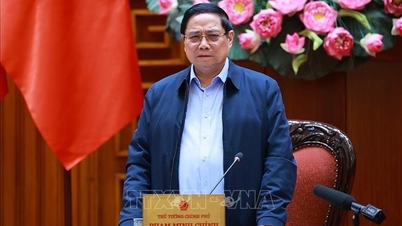

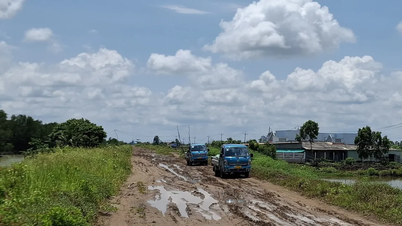





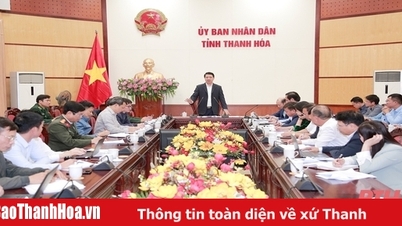

















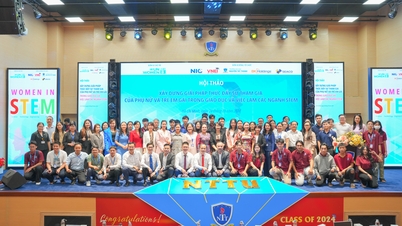
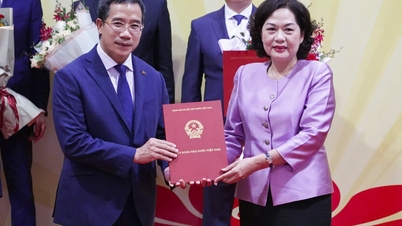










































































Comment (0)